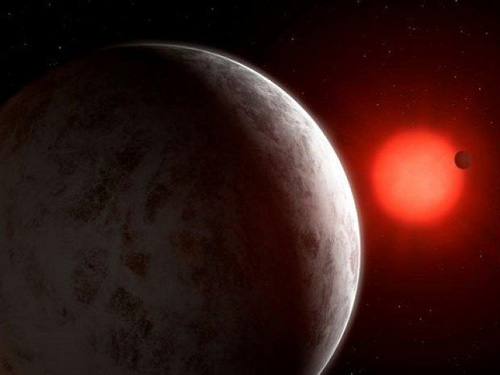Up to three planets potentially rocky like Earth have been spotted around a star located relatively near our solar system a planetary system offering astronomers intriguing possibilities in the search for signs of extraterrestrial life.
The planets orbit Gliese 887, a so-called red dwarf star half the sun’s mass located 11 light-years from Earth – right in our backyard in cosmic terms, researchers said on Friday.
A light-year is the distance light travels in a year, 9.5 trillion km.
Only 12 other stars are closer to our solar system.
Two planets have been definitively identified, one orbiting Gliese 887 every nine days and the other every 21 days.







